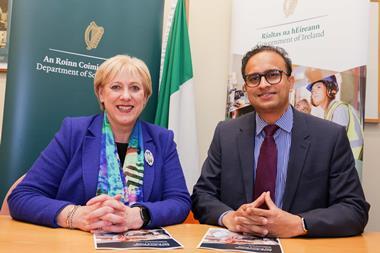As Iceland’s parliament adjourns following the collapse of prime minister Bjarni Benediktsson’s three-party coalition last month, it has approved the extension of a key benefit of the additional pension savings scheme — the ability to use it to pay down mortgages.
The idea of introducing auto-enrolment for the scheme has been gaining momentum recently, and one academic describes the benefits of the under-used scheme as immense.
Iceland is holding a parliamentary election on 30 November, after the ruling coalition fell apart last month over disagreements on issues including asylum policies and energy efficiency.
In the budget that was approved in Monday’s last parliamentary session before the election, legislators approved the extension of the ability to use private-sector additional pension savings to pay down mortgages at least an additional 12 months.
The extension overturns the government’s decision earlier this autumn to discontinue to mortgage payment option of the additional pension plan.
Már Wolfgang Mixa, associate professor at the University of Iceland and board member of the Almenni Pension Fund, told IPE he believes auto-enrolment should be introduced for the additional pension savings scheme in Iceland.
Explaining why, he said: “The benefits of additional pension savings in Iceland are immense.
“For a 2% to 4% contribution, the employer provides a 2% contribution, and people can additionally use such savings to pay down mortgage payments up to a certain degree, and also use contributions from the past 10 years as a down-payment for a home, both of which are tax-free,” he said.
According to Mixa, surveys show it is the poorest and least educated portion of Iceland’s population that uses this option by far the least.
“This applies especially to immigrants in Iceland who may not be aware of this scheme,” he said.
He argues the status of the scheme should be changed so that employers automatically enrol staff, while allowing them to opt out rather than keeping things as they are, with the onus remaining on employees to make an active decision to sign up.
“Various studies have shown that people tend to choose the default option when filling out forms,” Mixa said, citing Johnson and Goldstein’s 2003 study Do Defaults Save Lives?
“When it comes to becoming an organ donor, people have a tendency to opt for the default option, even though if in one case [in the study] people do opt to become one, and in the other case people opt not to become one,” he said.
Mixa said it could also be argued that people might perceive opting to contribute to the additional pension savings scheme as risky.
“It must be pointed out, though, that some parts of the population might perceive themselves not being able to afford such a savings scheme,” he said.
In order for the additional pension savings scheme to move to an auto-enrolment basis, Mixa said legislation is probably needed rather than expecting companies to implement the practice on their own.
“I believe that the government would need to at least provide clear legislation about companies having such an option and better yet, have a stipulation in employment contracts that this is the default decision – because some companies might be tempted not to inform their employees about this because they are required to add the 2% contribution, which in turn increase their wage costs,” he said.
Read the digital edition of IPE’s latest magazine























